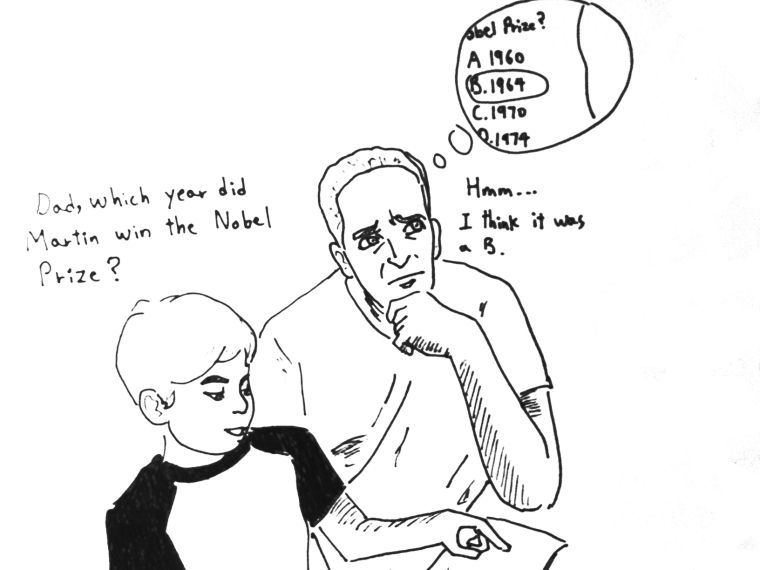Memorization is not the best learning tool
March 25, 2013
Sunday nights–the time when a great feat is oft attempted. Of course, I mean when students try to complete a plethora of homework assignments and studying that was put off for weekend festivities.
This was the case for me March 17 upon my return to school after spring break. I knew before leaving I would have a geology exam on the Monday following break.
I did what many other college students do: I saved trying to memorize material for the night right before the exam. Because I prolonged this study period until this time, it ended up taking me well into the morning (yes, the dreaded all-nighter). I looked over chapters from the book and stared blankly at notes, desperately trying to memorize everything in time for the exam.
This act of memorization is one I engage in often when studying. Sometimes it’s successful, and others times it isn’t. After speaking with students around campus, I’ve discovered there are a vast number of students who too try to memorize material more often than not.
“Most of the time when I’m studying I’m really just staring at my notes trying to remember everything,” said junior biology major Sylver Smith. “It takes me forever, but it works enough for me to get the grade I need and to just be done with it in general.”
We’re paying so much money to get the best form of higher education possible. Why not get all we can out of it instead of merely doing enough to get by?
Over and over you stare at the material trying to find a loophole to fall into that can help you miraculously pass the test. But, it doesn’t always work that way–memorizing can only take one so far. It is a web we weave meant only to suffice for short-term goals like passing an exam or a course. Ultimately, we aren’t truly learning or absorbing anything, but merely regurgitating facts to be spewed back onto paper.
Many may argue that much of what is learned isn’t needed for the “real” world or in their career, but I believe such knowledge shouldn’t be completely cast off as irrelevant. While said knowledge may not always pertain to your major or even be something you would normally be interested in, considering the skills that can be applied to life is just as valuable as the topics learned in classes of your major. Using what I learned in a statistics course, I was able to determine exactly how much a monthly insurance rate would cost. These math skills were something I was unaware I had even remembered, but it turned out to be quite helpful.
Instead of memorizing, try to find the benefits to be had in learning new material. I know it’s easier said than done, but just think of all the hassle you put yourself through trying to remember months of material for one test versus actually ingesting the material.
Being knowledgeable isn’t necessarily a bad thing, and who knows, one day you may come to value what you’ve learned.







